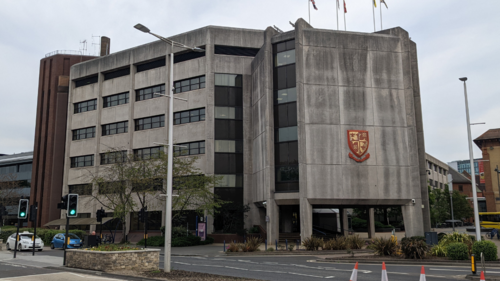
Woking Liberal Democrats Statement on Section 114
Statement following today's announcement by Woking Borough Council issuing an 'effective bankruptcy' Section-114 notice, signalling that a balanced budget is now unachievable:

Woking Borough Council is expected to set a working budget for the coming financial year, starting in April 2023. However, the former Conservative administration's failure to properly budget for cash to cover losses in Council companies means it will be hugely challenging to set a budget for future years.
New papers to be presented to the Council Executive on the 19th January will also reveal that existing loan repayments, falling asset values and a lack of income from investments look set to overwhelm the Council.
The Executive meeting will be told by officers that a balanced budget for the following financial year of 2024/25 is currently not expected to be achievable - even if extreme measures to cut costs continue to be taken.
The report details how emergency measures including "substantial services rationalisation" would have been enough to respond to external and relatively short-term pressures such as inflation, the pandemic and the war in Ukraine. However, the Borough has financial challenges unlike other local authorities, such as huge loan repayments unsupported by enough income.
Woking Borough has the highest level of Council debt per household in England. Annual debt repayments (over £60 million) are more than five times its revenue from council tax.
Cllr Ann-Marie Barker, Leader of Woking Borough Council since May 2022, comments:
"Tonight's report points out what many residents have feared all along - that borrowing was wholly disproportionate.
"The previous administration continued to borrow without adequate consideration for how to find the cash to make regular year by year loan repayments.
"We are looking to a future where Woking is a successful council not a failing bank. This could take decades, and certainly will involve years of emergency measures. It's vital the Council is honest about the future to local people. Given the scale of this inheritance, I am determined to work closely and constructively with partners in central government to plan an ambitious but realistic solution for long-term prosperity in Woking."
Cllr Dale Roberts, Portfolio Holder for Finance and Economic Development at Woking Borough Council, further explains: "Setting this year's budget is necessary for the council to determine the level of council tax and continue to deliver services to residents.
"Beyond this though, our focus is on resolving the issue of how much the council should have been setting aside to repay its loans. The scale is overwhelming. WBC has borrowed £1.5 billion from the government just to lend to its own subsidiary companies, Thameswey and Victoria Square Woking Limited. Proper budgeting for these loan repayments between the various entities will be enormously challenging.
"Before we took office eight months ago, we committed to affordable, responsible, and sustainable borrowing. That means we will be working diligently with the government appointed review team to resolve unambiguously the question of how much is adequate provision for these loans."
Notes to editors include:
The regulation that should have stopped the losses
Councils have a legal obligation to set aside certain amounts for loan repayments under regulations called minimum revenue provision (MRP). Liberal Democrats, in opposition, supported a legal challenge from a local resident questioning the way the previous administration calculated MRP for the Woking borough Council (WBC) accounts in 2019-20 and whether it was sufficient. WBC accounts for 2019-20 have still not been signed off by auditors. Local Lib Dems have continued to probe the prudence of the MRP since taking control last year.
On this basis, Conservative loans to subsidiary companies standing at £1,500,000,000 (£1.5 billion) should have required tens of millions set aside from each year's budget, not the small number of millions the previous administration set aside. However, this was avoided by the previous administration. Using so-called 'arms-length' companies helped the administration at the time to not treat this Council activity using the same rules of prudence.
Tonight's report to the Woking Borough Council Executive underlines that auditors and independent advisors have judged that the previous administration's provision for borrowing may technically have been just within the letter of the law. However, it was not prudent. If the Council's auditors or the government-appointed Rapid Review Board require a change in the way the MRP is calculated, it is likely to demonstrate that council finances have in fact been unsustainable for years.
For media enquiries please contact:
Cllr Adam Kirby, group head of publicity, Woking Borough Council Liberal Democrats